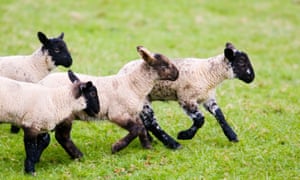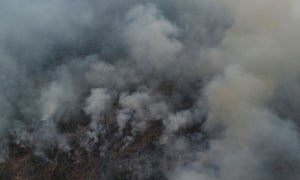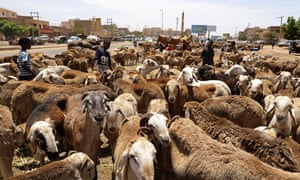News from around the world
China has made its largest-ever daily purchase of US corn, despite escalating tensions over trade between the two countries. Analysts say US farm products, including corn, are a key ingredient for animal feed as China’s pig population recovers from the deadly African swine fever.
Pig production in Mexico is on the rise as the country increases exports to China, Japan and South Korea. There has also been an almost 50% increase in pork exports from Brazil, with China the main destination. JBS is reported to be hiring more than 5,000 more workers in Brazil to increase production in its meat plants for export markets.
The popularity of chicken continues to soar globally, with the poultry market up 6% in 2019 and now worth more than $230bn (GBP175bn). Meanwhile, US meat giant Tyson Foods has made its first foray into the EU and UK markets by launching a range of branded chicken products, with the meat sourced from the Netherlands, Thailand and Brazil.
Vietnam has reported an outbreak of highly pathogenic avian influenza H5N1 in a poultry farm. The country has reportedly culled more than 150,000 birds after several outbreaks of bird flu this year.
News from the UK

The UK could lose its status as a global hub for poultry breeding in the event of a disruptive no-deal Brexit when the transition period ends in December. Thousands of day-old chicks are sent across the Channel every day by truck, but the industry has warned that breeders could relocate outside the UK if there are queues and border delays.
A no-deal Brexit could also lead to a cull of millions of lambs by UK farmers unable to find a market for their animals if the UK cannot reach an agreement with the EU by the end of this year. According to Agriculture and Horticulture Development Board (AHDB) figures, about 82% of UK beef exports and 89% of lamb exports go to the EU.
Sheep and cattle hides have dropped in value by 70% and 60% respectively over the past five years, according to reports. The meat industry blames the decline in use of leather in car and aircraft upholstery and footwear. Earlier this year we reported on efforts to grow a micro-tannery sector in the UK to make use of goat hides.
Small-scale abattoirs could be eligible for government support in the future, according to the Sustainable Food Trust. The Trust has been campaigning for financial help for small abattoirs to reduce journey times to slaughter for livestock and support local supply chains and markets.
An extended period of dry weather and recent flash flooding has led the National Farmers’ Union to launch a Fodder Bank to help out livestock farmers suffering from a lack of grass and fodder growth for feeding their livestock this winter. The bank will match farmers in need with those who have fodder available.
A Bristol-based brewery has been praised for turning waste beer into animal feed for pigs rather than pouring it down the drain as the Covid-19 pandemic lockdown left them with unsold beer.
And from the Animals farmed series

We’ve had a month of intensive coverage of the destruction of the Amazon. Dramatic new images have shown fires raging over wide areas of the Brazilian Amazon as campaigners sound the alarm over the “shocking” scale of the destruction. The fires come nearly a year after blazes across the region sparked an international crisis for the far-right government of President Jair Bolsonaro.
Photographic evidence has appeared to connect JBS, the world’s biggest meat company, to cattle supplied from a farm in the Brazilian Amazon which is under sanction for illegal deforestation. JBS has disputed the allegations. JBS has also been dropped by the investment arm of northern Europe’s largest financial services group over the company’s links to farms involved in Amazon deforestation. In the UK, Tesco has been urged to cut links to JBS and HSBC raised concerns in a report that the meat company has “no action plan” to tackle the problem. JBS said it was committed to ending deforestation throughout its supply chain.
In Argentina, locals have been sharing photos and videos of out of control fires on the Parana River grasslands. The fires have been blamed on the unregulated expansion of cattle ranching and drought.
KFC has been praised for owning up to poor welfare conditions among its chicken suppliers. More than a third of the birds on its supplier farms in the UK and Ireland suffer from a painful inflammation known as footpad dermatitis, which in severe cases can prevent birds from walking normally. The fast food giant has signed up to an NGO-led commitment to improve animal welfare standards.
In Turkey, animal rights campaigners are celebrating progress in their efforts to convince religious leaders, butchers and slaughterhouses of the merits of stunning animals before ritual slaughter. In Ireland, however, campaigners have said the shipment of young bulls from the country to Libya could contravene EU live export laws. Meanwhile, 3,000 sheep have died of hunger and thirst after more than 50,000 animals were rejected by Saudi Arabia. The sheep had been returned to Sudan after quarantine procedures for the animals were broken.

Meat plant workers have spoken out about intimidation and gruelling conditions at factories in the Netherlands. The country is the largest exporter of meat in the EU, but the coronavirus pandemic has exposed its poor treatment of workers. Meanwhile, a million mink have been culled in the Netherlands and Spain after farm workers and mink tested positive for Covid-19.
Long-time Guardian contributor Andrew Wasley, who has spent decades investigating the growth of industrial-scale farming, has given his personal perspective about what he’s llearned from reporting on the sector.
And finally, Burger King wants to sell us “less windy Whoppers” by feeding cows lemongrass to produce lower-methane meat. Researchers say the results are still inconclusive.
Share your stories
We want to hear from you about your experiences and stories from inside the farming industry. Please get in touch. You can contact us at: animalsfarmed@theguardian.com.
You can sign up for this Animals farmed monthly update to get a roundup of the best farming and food stories across the world and keep up with our investigations.